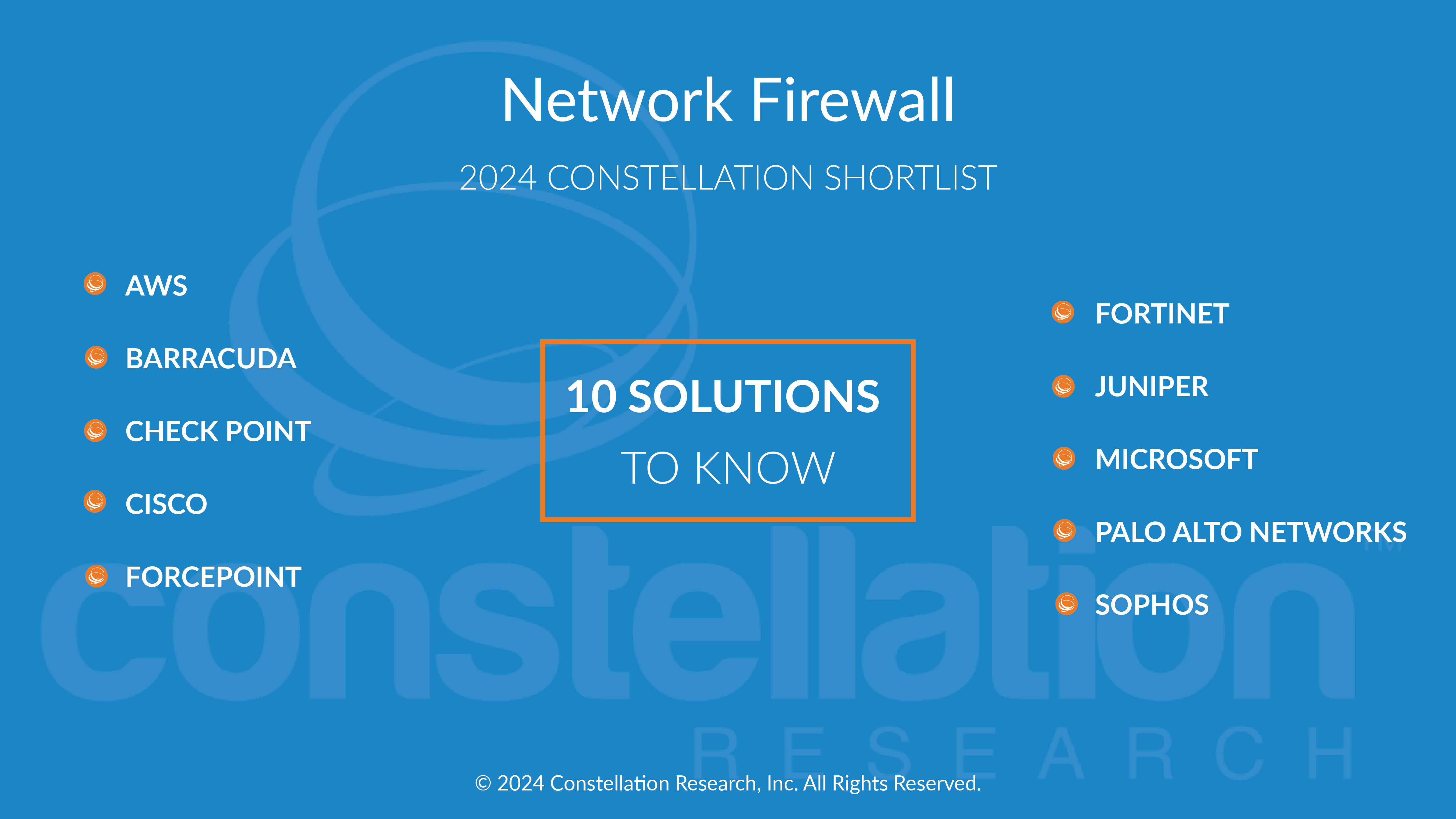
About This ShortList
In the ever-evolving digital landscape, securing your network perimeter remains paramount. Network Firewalls act as the first line of defense against unauthorized access, malware, and malicious traffic. Firewalls prevent unauthorized users and devices from accessing your network, mitigating risks associated with hacking attempts, malware infiltrations, and insider threats. They act as a barrier, allowing only authorized traffic based on pre-defined rules and policies.
By restricting sensitive data flows, firewalls minimize the risk of data breaches and leaks. They can filter based on data types, destinations, and protocols, preventing unauthorized exfiltration of confidential information. Malicious actors might attempt to overwhelm your network with traffic, causing service disruptions and outages. Firewalls can identify and block these DoS attacks, ensuring network availability and uptime. Malicious software can spread quickly within a network, causing widespread damage. Firewalls can block infected devices and malicious traffic, containing the spread of malware and minimizing its impact.
The Network Firewall market is robust and thriving, expected to reach $25 billion by 2027. This continuous growth underscores the undeniable value these solutions provide in safeguarding organizations of all sizes.
Threshold Criteria
Constellation considers the following criteria for these solutions:
- Stateful Inspection: Analyzes the context of network traffic, going beyond simple packet inspection, to identify and block malicious attempts more effectively.
- Deep Packet Inspection (DPI): Examines the content of data packets, enabling detection of sophisticated threats hidden within seemingly legitimate traffic.
- Intrusion Detection and Prevention (IDS/IPS): Continuously monitors network activity for suspicious behavior and proactively blocks or alerts on potential attacks.
- Application Control: Restricts the execution of unauthorized applications, preventing malware infections and data breaches through known attack vectors.
- VPN Support: Facilitates secure remote access by encrypting data traveling over public networks.
- Sandboxing: Isolates and analyzes suspicious files in a controlled environment before deployment, minimizing the risk of accidental infections.
- Multi-factor authentication (MFA) support: Adds an extra layer of security to remote access and administrative functions.
- Integration with Security Information and Event Management (SIEM): Enables centralized management and analysis of security data from the firewall alongside other sources.
- Adaptive Threat Detection: AI can analyze vast amounts of traffic data and threat intelligence to dynamically adjust firewall rules, enabling real-time adaptation to emerging threats.
- Automated Incident Response: AI-powered firewalls can automate responses to identified threats, minimizing damage and downtime.
- Self-learning Capabilities: Advanced AI may allow firewalls to learn from past attacks and automatically adjust their defenses for enhanced protection.
The Constellation ShortList™
Constellation evaluates more than 25 solutions categorized in this market. This Constellation ShortList is determined by client inquiries, partner conversations, customer references, vendor selection projects market share and internal research.
- AWS
- Barracuda
- Check Point
- Cisco
- Forcepoint
- Fortinet
- Juniper
- Microsoft
- Palo Alto Networks
- Sophos
Frequency of Evaluation
Each Constellation ShortList is updated at least once per year. Updates may occur after six months if deemed necessary.
Evaluation Services
Constellation clients can work with the analyst and research team to conduct a more thorough discussion of this Constellation ShortList. Constellation can also provide guidance in vendor selection and contract negotiation.


